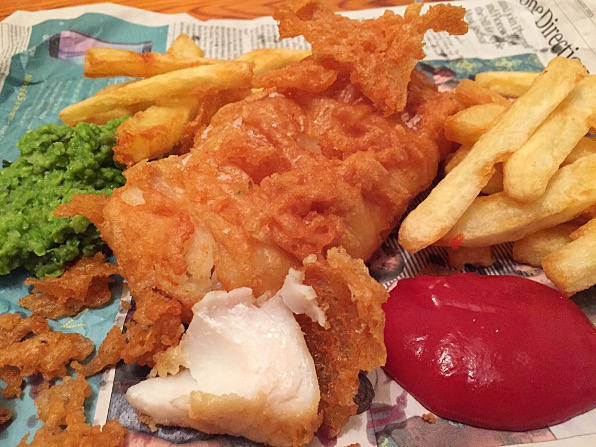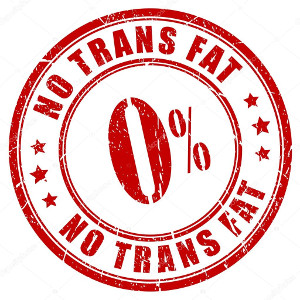In a move expected for some time, the Canadian Government has banned the use of Transfats in all foods made in Canada, imported to the country or prepared in restaurants. That’s going to put a burr under the saddle of Processed Food makers and restaurateurs, and probably raise their prices…
 Fish and Chips: Just one deep-fried delicacy which could become more expensive
Fish and Chips: Just one deep-fried delicacy which could become more expensive
as the new Canadian Transfat ban comes into full force…
In December 2016, Health Minisiter Jean Philpott unveiled changes to Canada’s Federal Nutrition Facts and Ingredients Listing labeling for all packaged foods sold in the country. The strategy is aimed at fighting Obesity, addressing consumer requests for simpler food labeling and clarified nutrition information.
The official news release stated the program, “… lays out how Health Canada will deliver on the Government’s commitment to … provide consumers with more information about sugars and food colours, and introduce restrictions on the commercial marketing of unhealthy foods and beverages to children.”
Dubbed the Healthy Eating Strategy, the plan also seeks to eliminate the use of Transfats in food products and reduce the prevalence of serious diet-related diseases. Four out of five Canadians will contract cancer, heart disease or Type 2 diabetes. One out of every six is already overweight and one out of three is clinically obese. Heart Disease alone kills tens of thousands of Canadians each year.
The head of the Canadian Heart and Stroke Foundation, Yves Savoie, said, in a statement, “This important and final step will eliminate these heart-clogging fats from our food supply, benefiting the health of all people in Canada by reducing the number of heart attacks and saving lives.”
What they’ve done…
A ban on Transfats, which are known to increase levels of ‘Bad Cholesterol’ in the bloodstream, came onto effect yesterday, after a grace period of two months since they were announced, to allow the Food Processing industry to adapt.
The new ban applies only to artificially-produced Transfats which,until now, have been used extensively as substitutes for Butter, to manage texture in manufactured Foods and to extend shelf life in products including Cookies, Pastries, Donuts and Muffins, Snack Foods and Fried Foods.
The alternatives include Canola Oil, which is relatively inexpensive, and other unsaturated fats which cost substantially more than the Transfats that have been popular in the industry until now.
My take…
Curiously, I think, the industry still has two years to completely phase out Transfats. I imagine this has something to do with the ability of Trans-fats to extend product shelf life and allowing manufacturers to sell products already made with Transfats, rather than having to recall them or throw them out.. But nowhere have I found any confirmation of this.
Nevertheless…
I agree with anti-Transfat crusaders that banning the disease-causing ingredient is long overdue and I hope the ban has the expected positive impact on the health of Canadians. I also hope the ban will increase the retail prices of unhealthy processed foods (which also contain a lot of Sugar and Salt) to a point where consumers will consider choosing less-harmful foods instead. But we are creatures of habit, and that’s not likely to change – unless or until the cost of a Twinkie exceeds twice that of an Apple. Yes, I exaggerate for effect.
And I want to point out that you’ll still have read the label carefully, at least for the next two years, to be sure your supermarket choices are Transfat-free.
Dr. Yoni Freedhoff, an obesity expert and anti-Transfat crusader, warns, if you see, in the ingredients list, that the product contains ‘partially-hydrogenated oils’, you’re not home-free: “So if it says partially hydrogenated, even if it says trans fats zero, it doesn’t mean that there are [really] zero trans fats.”
~ Maggie J.

